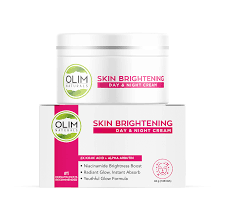Unlock Natural Beauty: Organic Skincare Benefits

Introduction
In an era where health and wellness are paramount, the shift towards organic and natural skincare products has become more than just a trend—it’s a lifestyle change. This guide explores the multifaceted benefits of using organic skincare, helping you understand why it might be the perfect choice for your skin and environment.
Understanding Organic Skincare
What Makes Skincare “Organic”?
Organic skincare products are formulated from ingredients grown without synthetic pesticides, fertilizers, or genetically modified organisms (GMOs). These products offer a pure form of skincare, focusing on natural processes and ingredients that are kind to both your skin and the environment.
The Difference Between Organic and Conventional Skincare
Conventional skincare often includes synthetic chemicals that can be harsh on the skin. In contrast, organic skincare relies on natural ingredients that promote skin health without the adverse effects associated with artificial additives and preservatives.
Benefits of Organic Skincare
Enhanced Skin Health with Natural Ingredients
Organic skincare products are rich in natural vitamins, minerals, and antioxidants that nourish the skin. Ingredients like organic shea butter, coconut oil, and essential oils provide deep hydration and repair the skin barrier, leading to healthier, more vibrant skin.
Safety from Harmful Chemicals
One of the most significant benefits of organic skincare is the absence of harsh chemicals. Many conventional skincare products contain potentially harmful substances like parabens, sulfates, and phthalates, which can disrupt the body’s natural processes. Organic products avoid these risks, offering a safer alternative.
Eco-Friendly Skincare
Reducing Environmental Impact
Organic skincare not only benefits your skin but also the planet. The farming practices for organic ingredients promote soil health, biodiversity, and reduce pollution from pesticides and synthetic fertilizers. By choosing organic, you contribute to a more sustainable and eco-friendly world.
Sustainable Packaging and Practices
Many organic skincare brands are committed to sustainability, not just in their products but also in their packaging. Biodegradable materials and recyclable containers are commonly used, minimizing plastic waste and reducing the environmental footprint.
How to Choose and Use Organic Skincare
Selecting the Right Products for Your Skin Type
Just like conventional products, organic skincare items come in various formulations to suit different skin types. It’s essential to know whether your skin is dry, oily, sensitive, or combination to select the most beneficial products. Reading labels and understanding ingredient benefits can help you make informed choices.
Integrating Organic Products into Your Routine
Switching to organic skincare doesn’t have to be overwhelming. Start by replacing products that stay on your skin the longest, like moisturizers and serums, as they have the most significant impact. Gradually, you can replace other products such as cleansers and toners.
Long-Term Benefits of Organic Skincare
Lasting Effects on Skin Health
The natural ingredients in organic skincare products can improve skin health over time, reducing issues like irritation, acne, and premature aging. Consistent use of organic products can lead to long-lasting improvements in skin texture and tone.
Contribution to Overall Wellbeing
Using organic skincare products can also contribute to overall wellbeing. The absence of harsh chemicals not only prevents potential negative effects on the skin but also reduces your overall exposure to toxic substances, supporting a healthier lifestyle.
Conclusion
Embracing organic and natural skincare products can transform your beauty routine into a nourishing, health-promoting, and environmentally friendly practice. With continuous advancements in organic skincare, it has never been easier to find products that suit your needs and ethics, allowing you to enjoy beauty in its most natural form.



